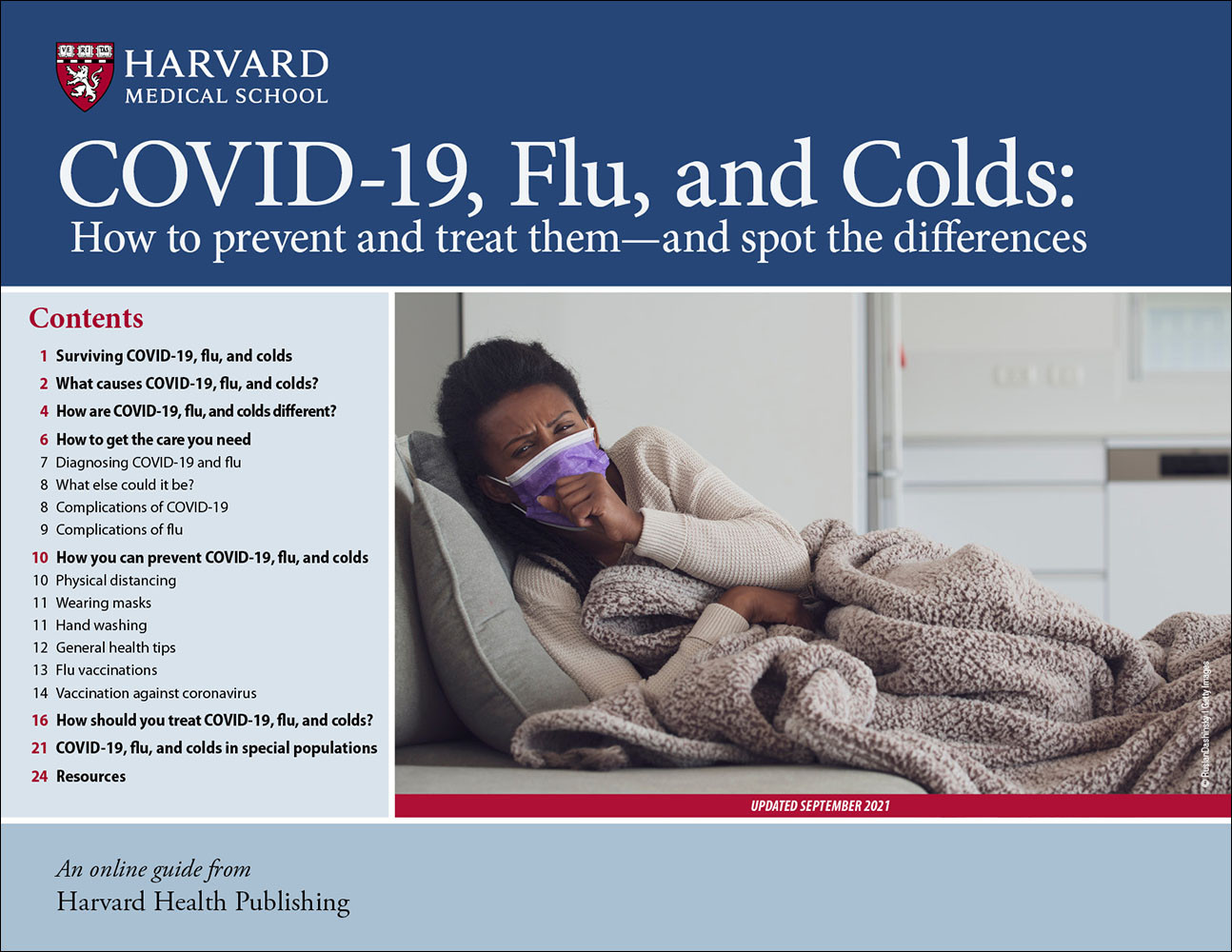Breathtaking asthma control mistakes
Winter's arrival makes certain triggers more pervasive. Preventing dangerous flare-ups requires a proactive mindset.
- Reviewed by Toni Golen, MD, Editor in Chief, Harvard Women's Health Watch; Editorial Advisory Board Member, Harvard Health Publishing; Contributor

Getting cozy in winter often means throwing a few logs on the fire and lighting a fragrant candle. But if you're among the 25 million Americans coping with asthma — which affects women nearly twice as often as men — these soothing rituals might unwittingly create big problems.
Wood smoke and candle scents can trigger or worsen asthma symptoms such as coughing, wheezing, chest tightness, and shortness of breath. They might also lead to dangerous flare-ups, which send more than 1.8 million Americans to hospital emergency rooms every year.
The threat of asthma — a chronic, inflammatory disease that causes the airways to narrow — shouldn't be minimized. More than 4,000 people die of it annually, while six in 10 adults with the condition have uncontrolled cases — a problem that's also worse in women.
That's why it's imperative to pay heed to seemingly innocuous things that surround you at this time of year. And this awareness should join a handful of other essential asthma management tactics you might also have overlooked, says Dr. Nora Barrett, a member of the Division of Allergy and Clinical Immunology and the Severe Asthma Program at Harvard-affiliated Brigham and Women's Hospital.
What to avoid
Dr. Barrett points to these common asthma control mistakes:
Skipping key vaccinations. Respiratory viruses can worsen asthma symptoms, Dr. Barrett says. Because we tend to travel and socialize more around the holidays, we're more likely to encounter them. "The No. 1 asthma trigger is viral infections," she says. "During the pandemic, when everyone was wearing masks and social distancing, not only were people helping to protect themselves from COVID, they were also not getting other viral infections such as the common cold, and they were not getting virus-triggered asthma exacerbations."
Accordingly, getting vaccinated against flu and COVID is especially important for people with asthma, who are more likely to face perilous complications. For the same reason, Dr. Barrett advises getting vaccinated against respiratory syncytial virus (RSV) and pneumonia.
Not seeing a specialist. A primary care doctor or internist is very capable of managing asthma cases that flare occasionally. But if your asthma is not responding to standard treatments and flaring frequently, it's time to see a specialist.
Allergists and pulmonologists can often identify underlying problems contributing to stubborn asthma. For example, allergies are a common trigger for asthma flares and an allergist can perform detailed testing to pinpoint which allergens, if any, bother you and how to reduce your exposure to them. Pulmonologists are lung specialists who have the expertise to better manage challenging asthma cases. "If you've seen your primary care doctor and still don't have great asthma control after a month or two, it's a red flag to ask why," Dr. Barrett says.
Missing less-obvious triggers. In addition to the aforementioned fireplace smoke and scented candles, other asthma triggers often fly under the radar. These irritants are often airborne, such as cigarette smoke, air fresheners, aerosol sprays, detergent scents, and bleach fumes.
Not recognizing signs of a flare. Unfortunately, many people with asthma don't recognize subtle warning signs that their asthma is veering out of control. "Up to 20% of patients may not notice their asthma until it gets severe," Dr. Barrett says. "They're poor perceivers."
Asthma is considered uncontrolled if you're experiencing symptoms of asthma during the day more than twice a week or waking up with asthma more than once a month. "Patients with poorly controlled asthma have a higher risk for having a serious exacerbation, needing oral steroids, going to the ER, or becoming hospitalized," Dr. Barrett says.
Not having a flare-up plan. What will you do if you arrive at your in-laws' over the holidays to find they've gotten a new cat or dog, but the pet dander worsens your asthma? It's wise to know how you'll respond to this and any other unexpected triggers.
"You and your doctor can create a plan beforehand to address those situations," Dr. Barrett says. "Ask how you should adjust or increase your medications in case you have a loss of asthma control."
Image: © Science Photo Library/Getty Images
About the Author

Maureen Salamon, Executive Editor, Harvard Women's Health Watch
About the Reviewer

Toni Golen, MD, Editor in Chief, Harvard Women's Health Watch; Editorial Advisory Board Member, Harvard Health Publishing; Contributor
Disclaimer:
As a service to our readers, Harvard Health Publishing provides access to our library of archived content. Please note the date of last review or update on all articles.
No content on this site, regardless of date, should ever be used as a substitute for direct medical advice from your doctor or other qualified clinician.















